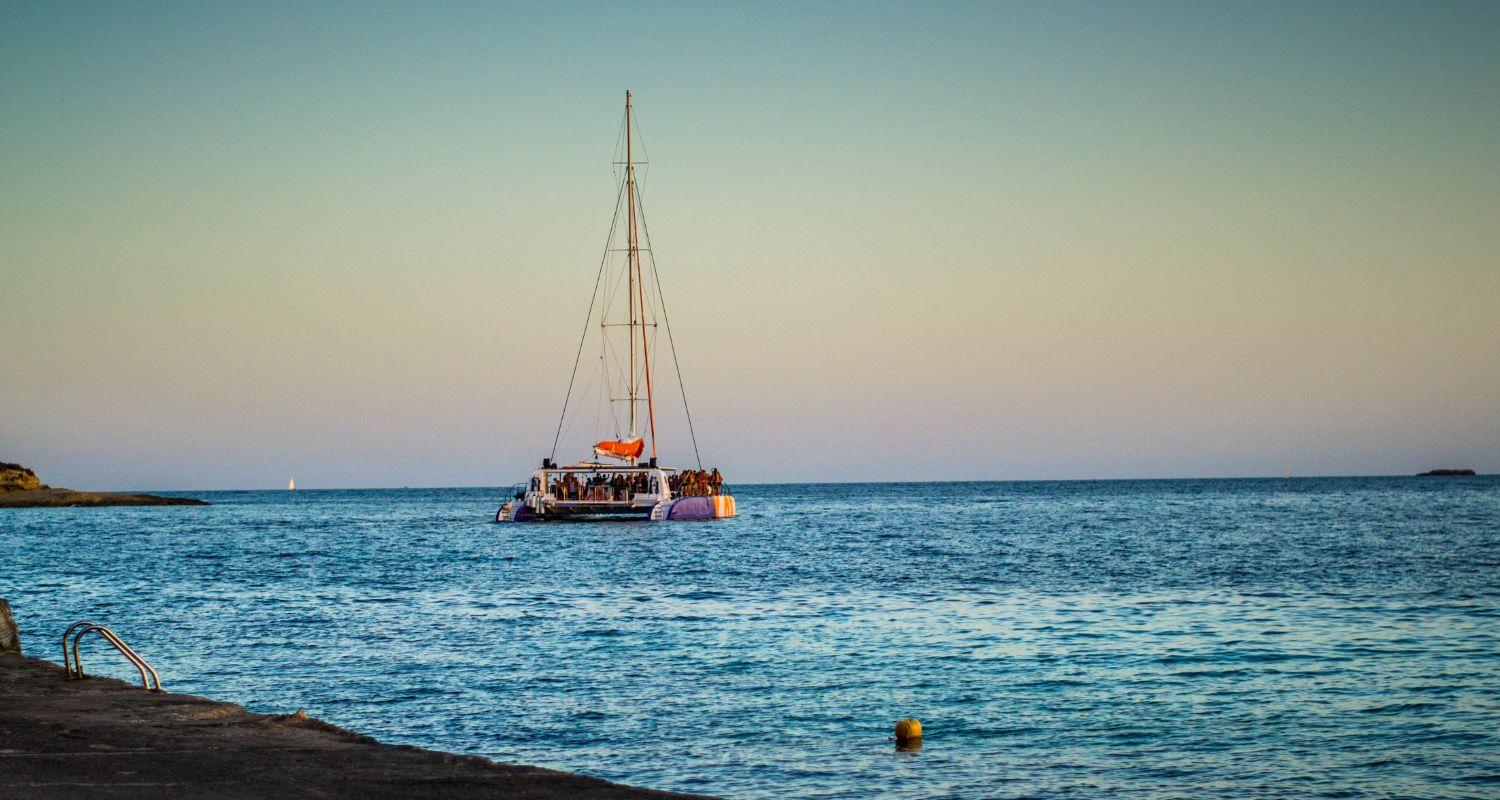
World Oceans Day: Awakening Africa’s Blue Economy
The theme of World Oceans Day 2024 on 8 June is “Awaken New Depths”. One of the key topics of the day is the Blue Economy and the United Nations has scheduled a panel discussion exploring an economic approach to the ocean. Given this year’s theme, we have to ask ourselves a very important question: Is Africa’s blue economy awakening?
Early on in 2018, Africa took a leadership role in promoting the blue economy with Kenya hosting the world’s first Sustainable Blue Economy Conference. The Conference Report noted:
The blue economy offers a lot of opportunities in the deep sea, however no African country has taken up these opportunities.
With over 60% of Africa’s population under 25 years, Africa has a goldmine of human capital that if appropriately sensitized, trained, and mainstreamed, will enable the continent to sustainably reap the benefits of the blue economy through job and wealth creation.
Following the Conference, in 2019, the African Union (AU), released the Africa Blue Economy Strategy which highlights key ocean-based opportunities including fisheries, shipping, blue energy, coastal tourism, and blue carbon. The Strategy also noted linkages to the African Continental Free Trade Area and the potential to use the oceans to “move of goods and services among AU member States with no restrictions.”
A 2022 World Bank report on the Blue Economy in Africa goes further stating that:
Africa’s Blue Economy has the potential to drive the continent’s future economic and sustainable development.
The Blue Economy is at the core of economic development and competitiveness for African coastal countries. Job-creating economic sectors like tourism and food-production sectors like fisheries depend on a clean and healthy coastal environment… Ecosystem services from mangroves and coastal habitats, upon which coastal populations depend, can be supported by new revenue-generating instruments, like blue carbon.
We are now seeing an increasing focus of African governments on the potential for the blue economy. For example, Kenya’s five-year Blue Economy Strategy Plan aims “to create a conducive environment for investment and facilitate sustainable management and development of the blue economy sector” and “to improve fish production, promote fish value addition, promoting local participation and investment in the blue economy.”
Nigeria has established a Federal Ministry of Marine and Blue Economy with a mandate to “to institutionalize Marine and Blue Economy as an important pillar for economic sustenance and growth diversification having due regards to the ecosystem.” This includes becoming “self-sufficient in fishery and fish product and a net exporter of fish and fish products to other countries.”
In South Africa, a 2024 Draft National Biodiversity Economy Strategy includes a goal on the “consumptive use of wild and produced marine and freshwater resources that drives inclusive coastal socio-economic development.” This includes development of a sustainable harvesting strategy for marine fisheries and promoting transformative value-chains.
Looking at the size of Africa’s Exclusive Economic Zone (EEZ) – 200 nautical miles offshore – in the Atlantic and Indian Oceans as well as the Mediterranean and Red Seas, one can envision the potential for the sustainable management of this area and the harvesting and trade of the marine resources in this area. According to estimates from the African Union, the continent’s Blue Economy could be worth $400 billion by the end of the decade.
When we think of the theme of this year’s World’s Ocean Day – Awaken New Depths – one can only imagine what new economic opportunities might be forthcoming from this immense natural asset. One such opportunity for Africa’s EEZ is ocean-based carbon dioxide removal (CDR).
The World Resources Institute explains that “Ocean carbon removal approaches aim to enhance or accelerate natural biological or chemical processes that sequester carbon in the ocean.” There are several possible approaches most of which are in the development stage. One approach, however, is already well established in Africa – sequestering carbon through coastal wetland restoration projects.
Over a decade ago, the large French food company, Danone, in partnership with the Ramsar Wetlands Convention and the International Union for Conservation of Nature , undertook a massive mangrove restoration programme in Senegal – roughly 8,000 hectares restored, 80 million trees planted, and 500,000 tonnes of carbon sequestered. On the other side of the continent, on the south coast of Kenya, a small-scale mangrove carbon project called Mikoko Pamoja was established demonstrating that coastal communities have the potential to supply carbon credits to the international market. There is enormous potential for producing and selling carbon credits from rewilding and protecting Africa’s mangroves and seagrasses.
The potential opportunities for offshore CDR might be even greater. Ocean Visions, for example, is developing road maps on some of the technologies that might be used in the oceans to remove significant amounts of carbon from the atmosphere. These include electrochemical CDR, macroalgae cultivation, and ocean alkalinity enhancement. Think of huge seaweed farms floating off the coasts of Africa.
Some of the CDR technologies are now being tested with some concern about potential risks to marine ecosystems and wild species. It is quite likely that ocean-based CDR technologies will be tested in Africa’s EEZ or in the open seas just beyond the EEZ. Hence, Africa’s blue economy strategies and policies will increasingly need to address the potential opportunities and risks of these emerging approaches to carbon reduction.
There is a growing interest in scaling up the blue economy across Africa. Opportunities include harvesting marine species, shipping, coastal tourism, renewable energy, and sequestering carbon. As the economy grows and diversifies, there will also be an increasing need to ensure that the various uses of the oceans are sustainable. Africa’s blue economy is indeed awakening and, with robust standards and regulations, should become a major contributor to the continent’s sustainable development.
Dr Francis Vorhies is the Director of the African Wildlife Economy Institute at Stellenbosch University.
This article was originally published on the News24 website and also as a newsclip on the Stellenbosch University website.
-

Prof Francis Vorhies
Director & Professor Extraordinary
We support the free flow of information. Please share:
More content
-
Evaluating key evidence and formulating regulatory alternatives regarding the UK's Hunting Trophies (Import Prohibition) Bill
Dr Michael 't Sas-Rolfes…We evaluate key evidence relating to the Hunting Trophies (Import Prohibition) Bill that was discussed in the UK...
2024Research -

The return of the UK's ill-conceived bill to ban hunting trophy imports
Prof Francis Vorhies…A recent report and poll reveal serious flaws in the UK government’s continued push to ban the importation…
Articles -

India’s Wildlife Economy: Balancing Conservation and Sustainable Use
Mathen ‘Rajeev’ MathewThe concept of a wildlife economy through the sustainable use of wildlife is increasingly recognised as a means…
Articles -

Leveraging free trade to boost Africa’s wildlife economies through wild-harvested products
Dr Wiseman NdlovuThe intra-Africa trade of wild products presents a unique intersection of economic opportunity and environmental conservation. With the...
2024Research -

Insights from the African Wildlife Economy Colloquium
Klarine SchutteThe inaugural African Wildlife Economy Colloquium, held from 4–6 November at Stellenbosch University, brought together a diverse group…
Articles -

Drivers of hunting and photographic tourism income to communal conservancies in Namibia
Mr Joseph Goergen …Hunting and photographic tourism provide ecosystem services that can facilitate conservation. Understanding factors influencing how tourism industries generate...
2024Research -

SANParks Vision 2040: A New Era for Conservation in South Africa
Ms Emily TaylorReimagining Conservation: SANParks' Vision 2040
South African National Parks (SANParks) has unveiled its ambitious Vision 2040, a…
Articles -

In defence of wild meat’s place at the table
Tim VernimmenQ&A — Conservation scientist E.J. Milner-Gulland
Sustainable and safe consumption of wildlife is possible, and important for those…
Articles -

The diverse socioeconomic contributions of wildlife ranching
Candice Denner…The diverse socioeconomic contributions of wildlife ranching are increasingly recognized as a vital element of sustainable development, particularly...
2024Research
Get updates by email
Through impactful research, stakeholder engagement, and professional development, AWEI is supporting the wildlife economy across Africa. Please subscribe for occasional updates on our work and forthcoming events.
Sign up for a quarterly dose of AWEI insights
In a complex and changing world, AWEI generates strategic ideas, conducts independent analysis on wildlife economies, and collaborates with global scholar-practitioners to provide training and expertise for biodiversity conservation, climate resilience, and inclusive economic opportunities in Africa.
